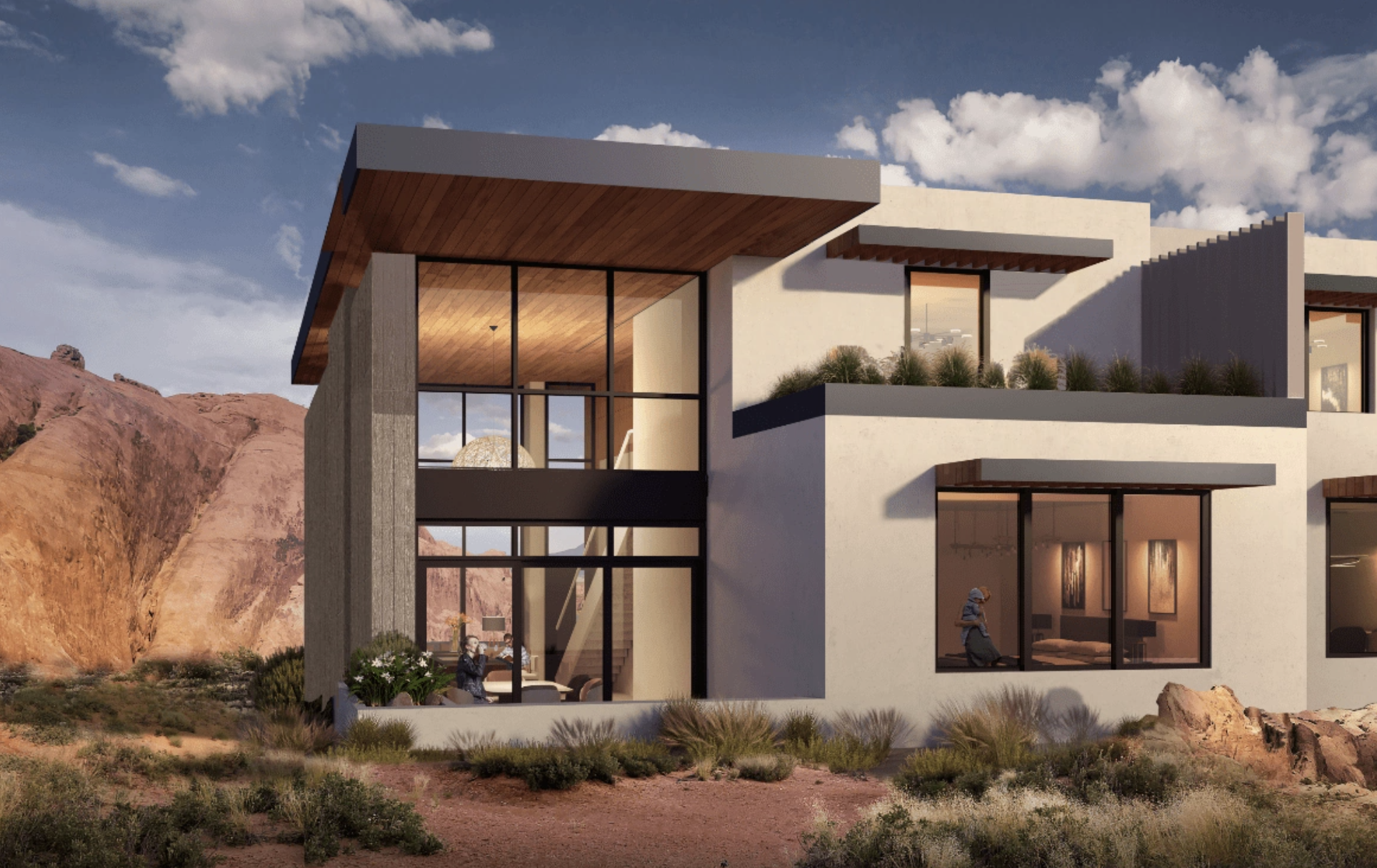Some information may be outdated.
Over the past few years, travelers on the road to the Sand Flats Recreation Area will have noticed construction activity: sticks of pipe stored along the road, trenches dug to bring utilities up the hill, dirt being moved and ground being leveled, all to prepare for the construction of a luxury development called Lionsback Resort. The resort will eventually include a hotel, 188 residential “casitas,” a conference space, a wedding venue, and a spa, all overlooking a designated open space.
The Moab City Council approved the development in 2008, green-lighting mixed-use with residential, overnight lodging, retail, recreational, and open space land uses on a 175-acre parcel of SITLA (School and Institutional Trust Lands Association) land. The original vesting period—the amount of time the building permit for the resort lasts—was 15 years, set to expire in July 2023. During the vesting period, the city’s development standards in effect of the date of approval (2008) remain the development standards applicable to the resort throughout the period.
But many locals have been opposed to the project since the beginning. In 2008, the Moab Local Green Party filed a case against the City of Moab and the resort’s parent company, Invent Development Partners (then LB Moab Land Company LLC); the case was resolved four years later in 2012. In 2017, another case was filed against the City of Moab, SITLA, and Invent Development Partners by a group of citizens; the case was resolved in 2020. The project remains unpopular—a January 2022 article published by Utah Business magazine, originally with the headline “The Lionsback Resort Could Be Moab’s First Utopia,” received intense backlash on social media.
The series of litigation delayed the project for a total of 88 months, or just over 7 years. Invent Development Partners recently requested the City of Moab extend the project vesting period for 75 months, until Oct. 31, 2029, to make up for the time the project was stalled due to litigation.
During a city council meeting on Oct. 25, the council voted on whether or not to approve the extension. According to Lisa Watts Baskin, an attorney with Smith Hartvigsen who was hired by the city to do an independent analysis of the original contracts and the vesting period extension request, the city had basically no choice but to approve the extension—in one of the original contracts, the city agreed to extend the vesting period for a “reasonable time” if the project was delayed from completion because of events “not reasonably within control of the company” and if, in the meantime, the company had “diligently pursued the development.”
The company has “diligently pursued development” according to Baskin: So far, the company has spent $6 million on the project. According to the project’s website, the company is planning to build a total of 188 single-family residences (called “casitas”); 34 of those are expected to be finished during Phase 1 of the project, the current phase. The homes are zoned to allow short-term rentals.
“The company itself has numerous provisions that protect them, which you as a city council had agreed to in 2008,” Baskin said. “The risks associated with denying the extension are pretty significant … If you were to deny it, it seems to us that it would be indefensible—and if you as a city council, as a City of Moab, were sued, we would have great difficulty in defending you.”
The motion to extend the vesting period passed unanimously. The vote was only to extend the vesting period; the company requested no changes to its master development plan.
Appreciate the coverage? Help keep local news alive.
Chip in to support the Moab Sun News.





